Establishing a satellite office to further the cause of peace in Marsabit
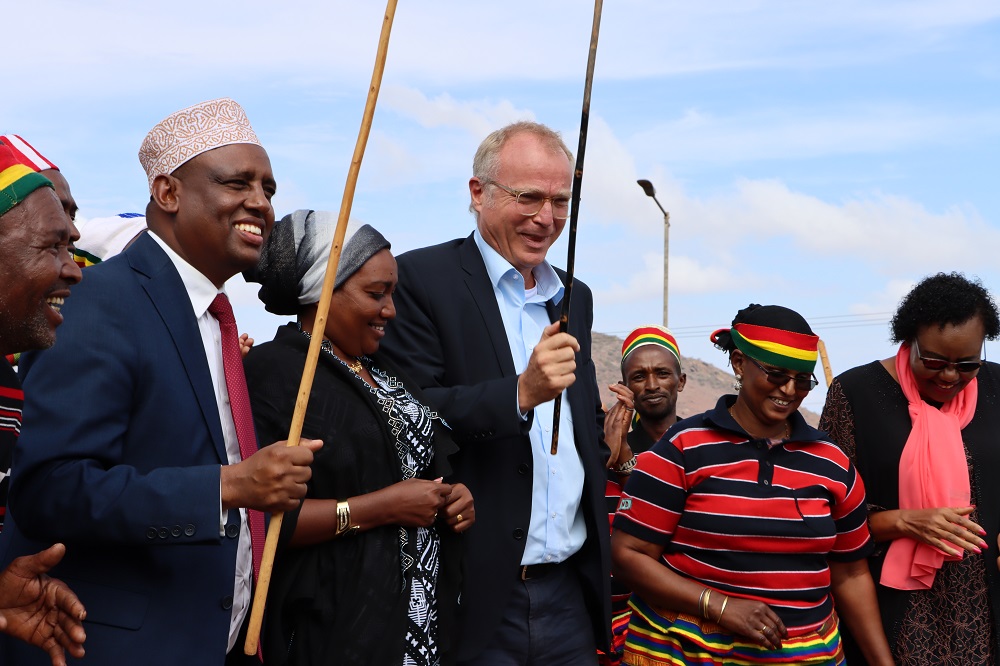
Marsabit County has witnessed sporadic incidents of conflict between communities over the past decades. The cycles of violence in the county have intensified since 2005, with tensions escalating to an all-time high in 2021 and early 2022. Due to this intensification of violence, the National Cohesion and Integration Commission (NCIC) and Interpeace began implementing a joint peacebuilding initiative to end violence in the county earlier this year. The ‘Marsabit County Peacebuilding Programme-Stabilization Phase’ was officially launched on 14 November, together with an event to mark the opening of the NCIC satellite office in Marsabit town.
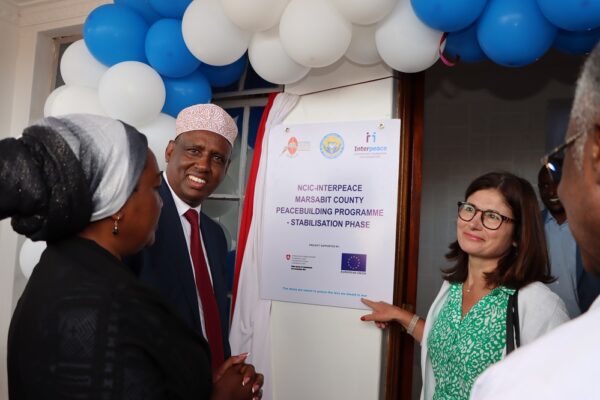
During the 2022 elections in Kenya, the programme, supported by the European Union (EU) and the Swiss Agency for Development and Cooperation (SDC), focused on preventing an escalation of violence. Since then, the security situation has improved significantly, after Gabra and Borana communities started getting together by their own initiative, agreeing to co-exist peacefully. This has resulted in a gradual resumption of normalcy, with roads starting to reopen and stolen livestock being returned. The programme is now turning its efforts towards supporting these initiatives, while putting in place preconditions for peace by developing and strengthening structures for sustainable and inclusive conflict management.
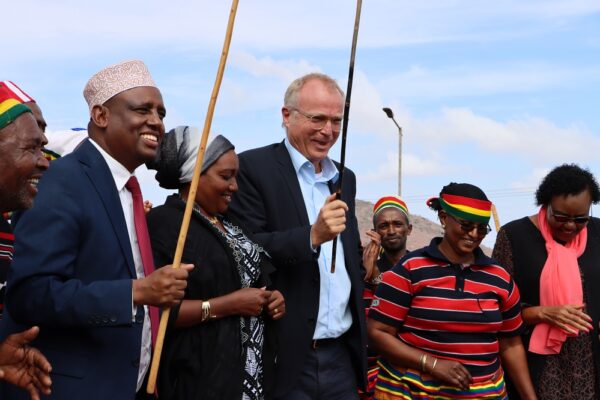
Speaking in Marsabit during the opening of the new office, NCIC Chairman Rev. Dr. Samuel Kobia said “Marsabit County had lost over 400 people to intercommunal violence in the last five years, with the Saku constituency being the most affected. The conflict resulted in the loss of lives, destruction of property, disruption of service delivery, and disruption of development activities and socio-economic activities”.
Kobia said it was encouraging to note that normalcy was slowly returning to the region due to the efforts of the political leaders, religious leaders, peace actors, and security teams that have worked tirelessly to maintain peace.
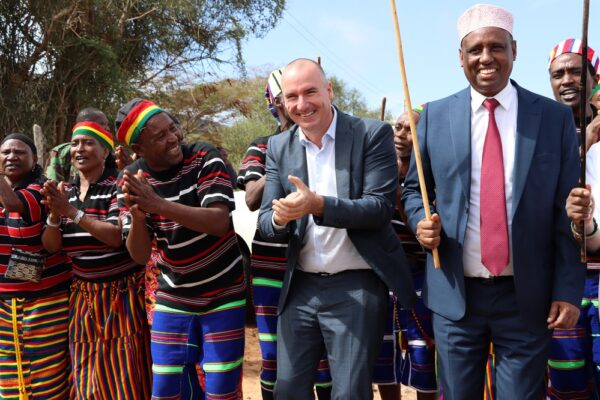
Dr Theo Hollander, Interpeace’s Senior Regional Representative for the Horn of Africa, said that he was pleased to see that incidents of violence had started to decline, particularly emphasizing the emergence of grassroots peace initiatives.
"In the one and a half years after we did our rapid conflict assessment, we can see that security actors have stepped up and launched a security action that has opened a window of opportunity for the emergence of community-driven peace processes. Most importantly, we have seen significant efforts from the affected communities to bend the spear and try to reconcile. Interpeace is here to support these efforts," he noted.
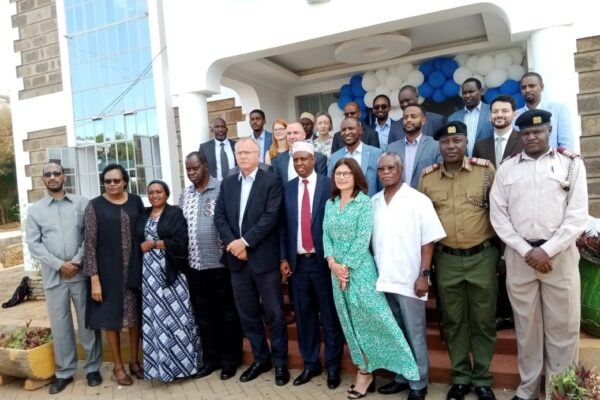
To better understand the nuances of the conflicts, in May 2021, NCIC, Interpeace, the County Government of Marsabit, and the National Steering Committee on Peacebuilding and Conflict Management undertook a joint conflict assessment to identify main drivers of conflict and sources of resilience in Marsabit County. The results identified ethno-politicisation, a zero-sum approach to power and resources, unresolved individual and collective grievances, impunity, and government inaction as key factors fueling violent conflict. The ‘NCIC-Interpeace Marsabit County Peacebuilding Programme- Stabilization Phase’ seeks to reduce violence, before and after the 2022 elections, by mobilising actors across society, while gaining a consensus for long-term peacebuilding and conflict resolution needs and priorities.
Through this initiative, trust has been restored between communities and the culture of peace and reconciliation nurtured – hence addressing some structural issues that often trigger conflict with the lead of communities.
